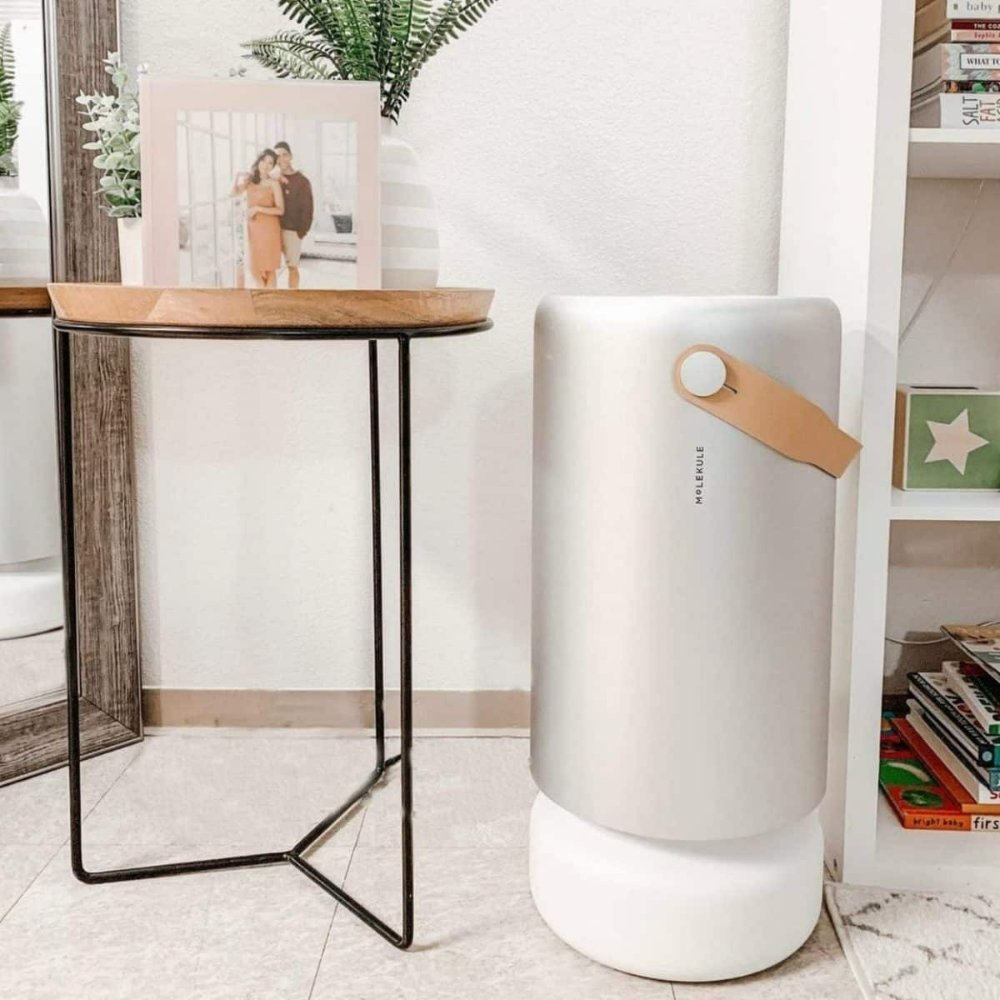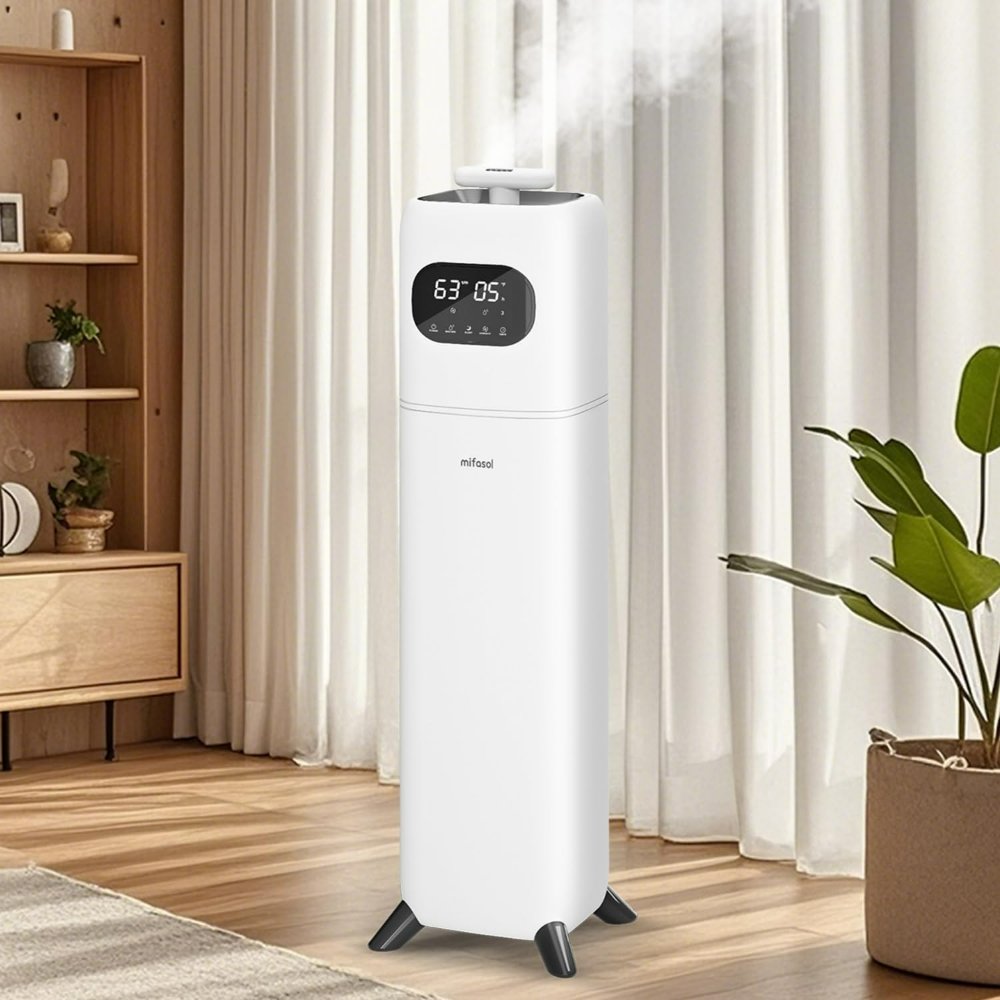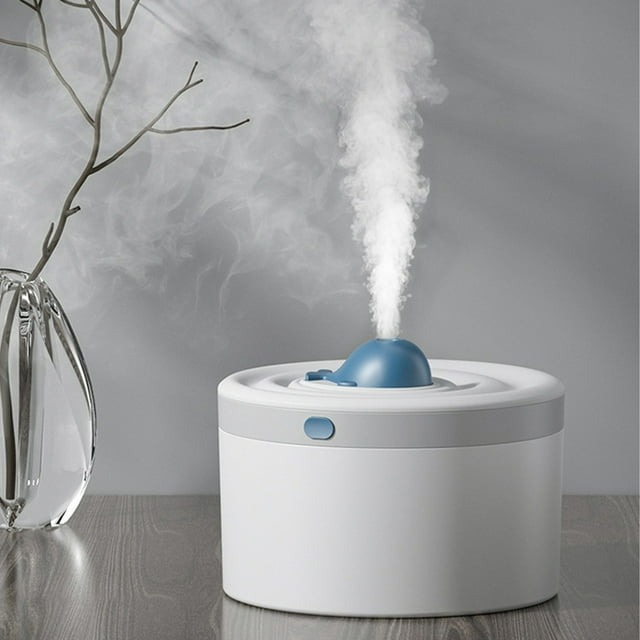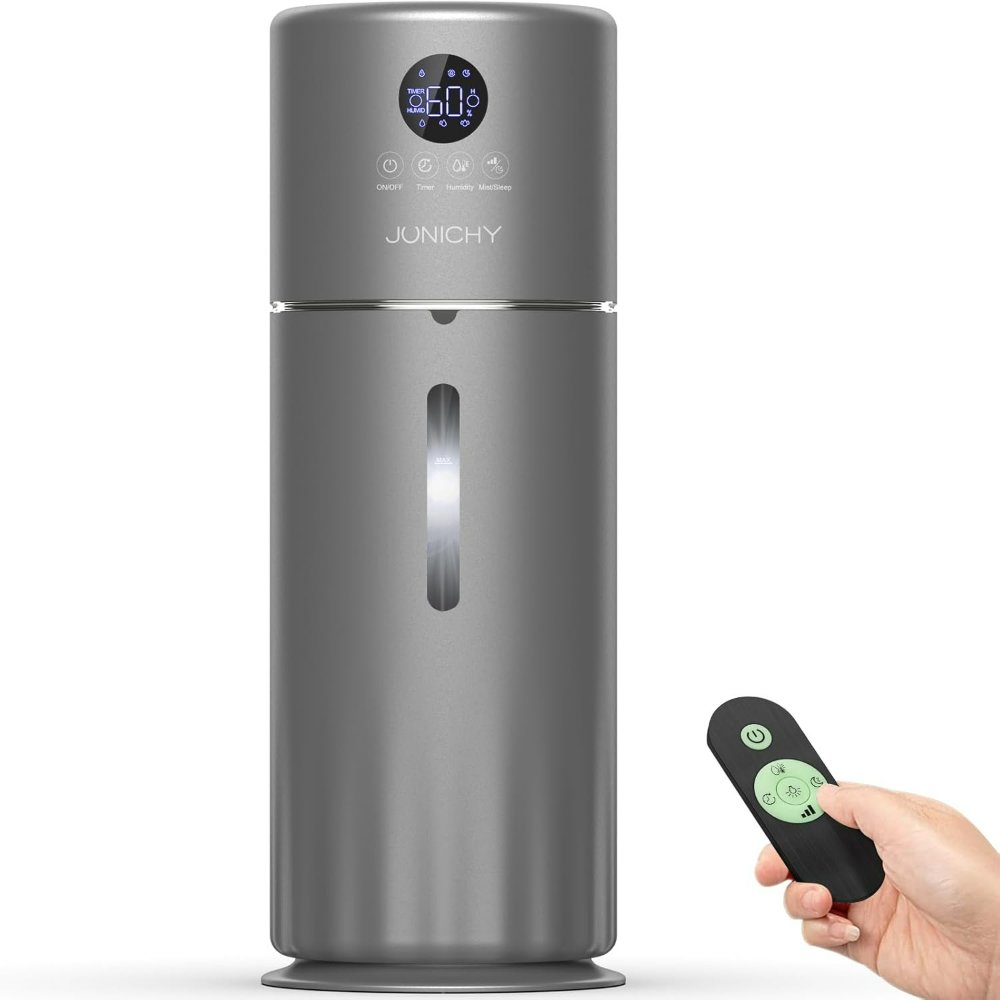Introduction to Air Quality and Personal Health
Clean air is crucial for our health and well-being. Every day, our bodies depend on fresh, clean air to function properly. Sadly, indoor air quality is often worse than outdoor air. This is due to pollutants from household items, mold, dust, and chemicals. Children, the elderly, and people with respiratory issues face higher risks from poor air. Thus, managing indoor air quality is a must. It helps prevent health issues and improves our daily life. Devices like air purifiers and humidifiers can aid in enhancing the air around us.
An air purifier vs humidifier choice involves deciding what’s best for your health needs. Air purifiers clean the air by removing pollutants. They are best for allergy sufferers or those sensitive to air quality. Humidifiers, on the other hand, add moisture to the air. This can help with dry skin, sinuses, and respiratory comfort. The ideal choice can depend on many factors. These include climate, health concerns, and the specific needs of your living space. Making an informed decision between an air purifier vs humidifier can lead to improved health and comfort.
In the following sections, we will dive into the specifics of both devices. We will explore the types, the benefits, and the best use-cases for air purifiers and humidifiers. This will help you understand which device can best address your personal health needs regarding air quality.

Air Purifiers Explained
Air purifiers play a critical role in enhancing indoor air quality. They use filters to trap pollutants and allergens, delivering cleaner air. People often opt for air purifiers to reduce contaminants in their homes or offices.
Types of Air Purifiers
Several types of air purifiers target different air quality issues. Mechanical filters capture particles like dust and pet dander. Activated carbon filters absorb odors and chemicals. Ultraviolet (UV) light purifiers kill microbes, and ionic purifiers release ions to remove pollutants. Each type has its unique method of purifying the air.
Benefits of Using an Air Purifier
Air purifiers offer various health benefits. They reduce allergy triggers, such as pollen and pet dander. By removing smoke and chemical pollutants, they also lower the risk of respiratory problems. Air purifiers can diminish mold growth, providing a cleaner breathing environment.
Ideal Use-Cases for Air Purifiers
Choosing an air purifier vs humidifier depends on specific needs. Air purifiers excel in environments with high levels of pollution or allergens. They are ideal for allergy sufferers or those with asthma. In areas prone to wildfires, they help clear smoke from the air. For homes with pets, air purifiers are effective in reducing pet-related allergens.
Humidifiers Unveiled
While air purifiers focus on cleaning the air, humidifiers add much-needed moisture. They alleviate problems caused by dry air in your space. Dry air can lead to discomforts, such as irritation in your nasal passages or skin. Plus, it may damage wooden furniture or musical instruments. If you’re often waking up with a dry throat or suffering from sinus headaches, a humidifier may be what you need.
Types of Humidifiers
Humidifiers come in various forms. Each type suits different preferences and environments. There are evaporative humidifiers that use a fan to blow air through a wet wick filter. This process adds moisture to the air. Ultrasonic humidifiers produce a mist from ultrasonic vibrations. These are often quieter. Steam vaporizers heat water to release steam and warm the room as well. Lastly, impeller humidifiers use a rotating disk to fling water at a diffuser, which breaks the water into fine droplets.
Advantages of Humidifiers
Using a humidifier comes with benefits. They can ease symptoms of a cold or respiratory infection. By maintaining optimal humidity levels, they prevent the drying of mucous membranes. This can result in better respiratory health. Humidifiers also keep your skin moist. During winter, when heating systems dry the air, they are a savior for avoiding itchy and cracked skin. Moreover, they protect wooden furniture and plants by ensuring adequate humidity.
When to Choose a Humidifier
Choosing an air purifier vs humidifier varies by need. Opt for a humidifier in environments that are dry, especially during winter months. If you have sinus issues, or your skin gets dry easily, a humidifier can provide relief. They are also ideal for infants and young children as they are sensitive to air moisture levels. Consider a humidifier for preserving items that could be damaged by dry air, like wooden instruments or antique furniture.

Comparing Air Purifiers and Humidifiers
When deciding between an air purifier vs humidifier, understanding the key differences is vital. Air purifiers and humidifiers serve different purposes in enhancing indoor air quality. However, they operate based on distinct principles and offer unique benefits. Knowing these differences will help in making the right choice for your needs.
Key Differences
Air purifiers clean air by capturing pollutants; humidifiers add moisture to prevent dryness. Air purifiers use various filtration systems to trap contaminants like dust, pollen, and smoke. In contrast, humidifiers release water vapor or mist to raise the humidity levels, thus moistening the air. Air purifiers are essential for removing airborne particles, while humidifiers are crucial for maintaining comfortable moisture levels.
Pros and Cons
The pros of air purifiers include reducing allergy triggers and protecting against respiratory issues. They can help keep the air in your space free from pollutants and allergens. On the downside, air purifiers can require frequent maintenance like filter replacement, and they don’t affect humidity levels.
For humidifiers, the pros are clear. They offer relief from dry skin, sinuses, and can safeguard wooden furniture from cracks. However, if not maintained properly, they can promote mold growth by adding too much moisture. It’s important to use them with care and monitor humidity levels to stay within a healthy range.
By comparing air purifiers and humidifiers, you can identify which one suits your unique health goals better. Consider your personal health concerns, the climate you live in, and the specific conditions of your living or working environment. Whether it’s to purify the air you breathe or to add moisture to it, choose the device that will best enhance your quality of life.
Addressing Common Health Concerns
When choosing between an air purifier vs humidifier, health concerns are a critical factor. Understanding how each device can address certain health issues can guide your decision.
Allergies and Asthma
For those with allergies or asthma, clean air is not just about comfort, it’s a necessity. Air purifiers excel in providing relief here. They remove allergens such as pollen, pet dander, and dust mites from the air. This can significantly ease breathing problems and reduce asthma attacks. Without these triggers, allergy sufferers may find a noticeable improvement in their symptoms.
Skin and Respiratory Health
Dry air can be harsh on your skin and respiratory tracts. If you experience dry skin, chapped lips, or frequent nosebleeds, a humidifier might be your best option. It adds moisture to the air, which can soothe irritated skin and improve respiratory function. Maintaining proper humidity could also reduce the likelihood of catching colds and speed up recovery. It’s important to strike a balance to avoid over-humidification, which can lead to other health issues.

Factors to Consider When Choosing
Deciding between an air purifier vs humidifier involves several considerations. Personal health is paramount, but other factors also play a role in your choice.
Room Size and Environment
Your living space size and environment are crucial in selecting the right device.
- Air purifiers are rated for certain room sizes, so choose one that fits your space.
- Humidifiers should align with space as well to effectively adjust moisture levels.
Consider environment factors like climate and existing air quality when choosing.
Maintenance and Cost
Both devices require maintenance but vary in frequency and cost.
- Air purifiers need regular filter changes, affecting long-term costs.
- Humidifiers require cleaning and refilling, with less frequent part replacement.
Assess your willingness to perform maintenance and the associated costs.
Health Goals
Finally, consider your health goals.
- Choose an air purifier if reducing allergens and improving respiratory health is your priority.
- Opt for a humidifier if combating dry air issues is essential for your comfort and health.
Your individual health concerns should guide the final decision between an air purifier and a humidifier.
Final Thoughts and Recommendations
As we wrap up the discussion on air purifier vs humidifier, it’s clear that both devices have their unique place in promoting better air quality and improving health. Making the right choice will depend on understanding your specific health concerns, the environment in which you live, and what you’re hoping to achieve with the device. Here are some final recommendations to help guide your decision:
- If your priority is to reduce airborne pollutants, allergens, and improve respiratory health, an air purifier is likely the right choice for you.
- Should you find that the air in your home is dry, causing discomfort to your skin or respiratory system, a humidifier might bring you significant relief.
Remember to consider the size of your space when choosing either a purifier or a humidifier. Verify that the device you select is appropriate for the size of the room where it will be used. Additionally, factor in the maintenance requirements and cost implications over time. Regular maintenance is crucial to ensure your device operates efficiently and continues to meet your health needs.
Lastly, don’t hesitate to consult a healthcare professional if you have severe allergies, asthma, or respiratory conditions to get personalized advice. With these considerations in mind, you can make an informed decision that will contribute positively to the air quality in your home or office, and ultimately, to your health and well-being. Choose wisely for a breath of fresh air and the comfort you deserve.
